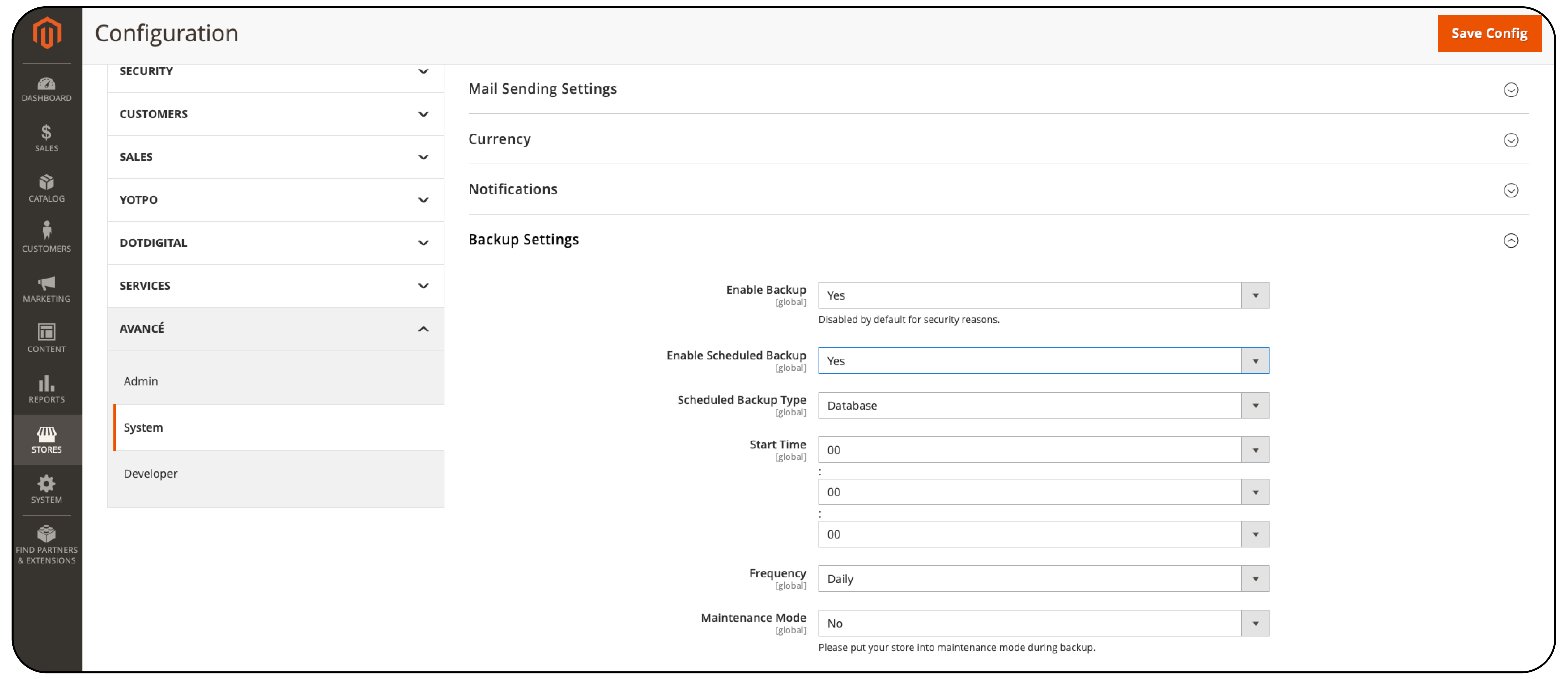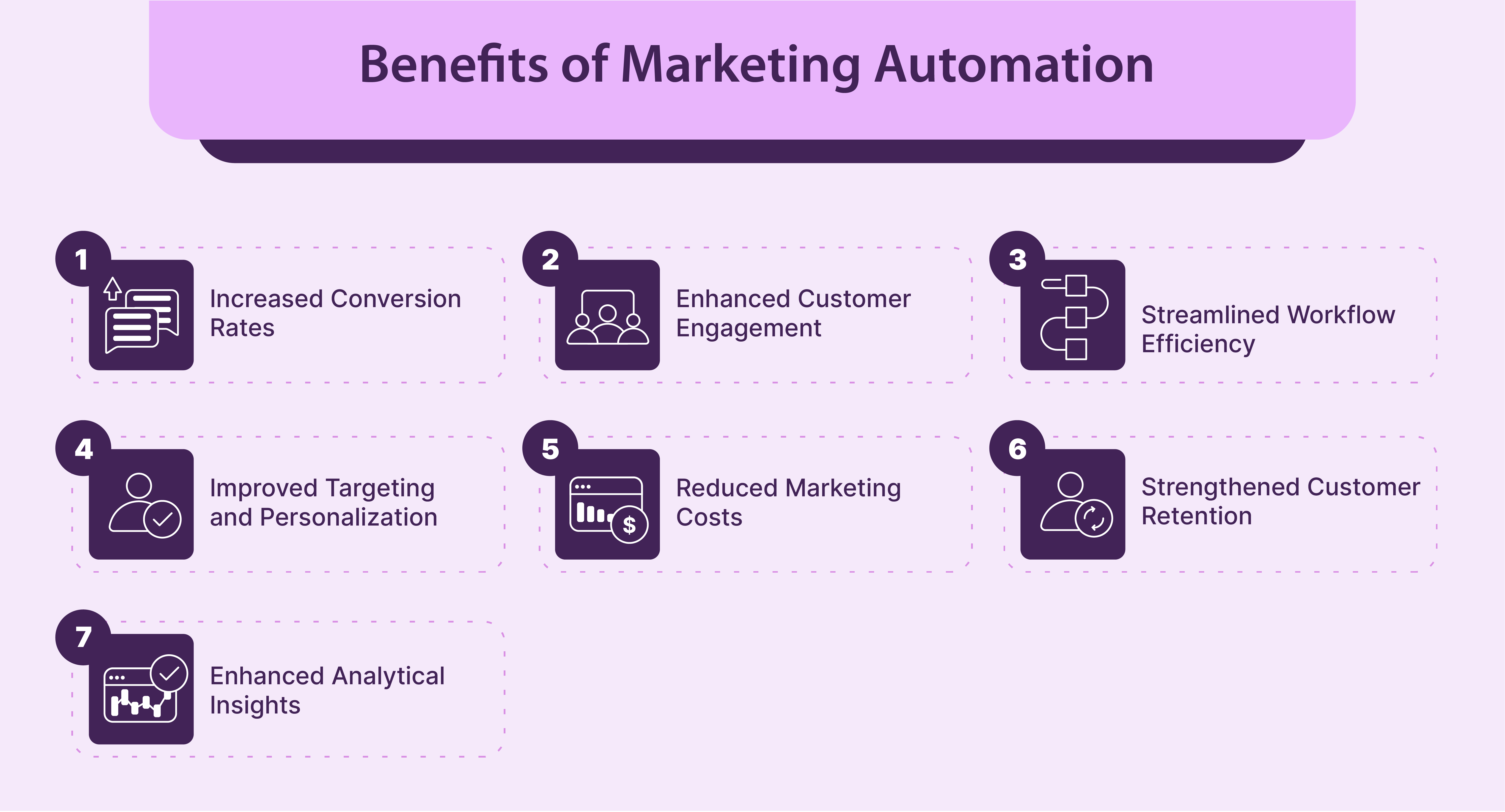
9 Best Magento Automation Software for Ecommerce Stores
Magento automation helps online merchants streamline store processes, automate repetitive tasks, and save time and resources. Automation tools automate tasks like Magento OMS, inventory management, PIM, order processing, email marketing, customer service, etc. This article will list the top 9 Magento automation software for ecommerce stores.
Key Takeaways
-
Magento automation streamlines e-commerce operations, saving time and resources.
-
Improved customer experience with personalized interactions and marketing.
-
Data-driven analytics boost performance optimization and decision-making.
-
Scalability and efficient management are enabled through automation tools.
-
Automation in marketing and Magento CRM activities enhances engagement and retention.
Why Use Magento Automation?
1. Enhanced Productivity
By automating repetitive tasks with Magento, e-commerce store owners can focus on core business development. They don't have to get bogged down by routine activities. For example, Magento plugins can streamline actions like updating product information or processing orders. This leaves more time to strategize and optimize overall productivity.
2. Improved Customer Experience
Customization tools within Magento automation software enable creation of a personalized shopping experience for customers. For instance, by using ecommerce analytics to track customer actions, stores can tailor contacts and content to meet consumer needs better. This could be in the form of customized emails or targeted landing pages.
3. Streamlined Analytics and Performance Optimization
With the right Magento automation tools, e-commerce sites can gather and utilize analytics on customer behavior and site performance. This data is crucial. It helps in identifying trends, addressing issues, and making data-driven decisions. These decisions can lead to performance optimization and better case outcomes.
4. Effective Marketing and CRM Integration
Magento's automation capabilities extend to marketing. Automated actions, such as email campaigns, chat messages, or social media posts, can be triggered by customer behavior. Integrating a CRM system ensures all customer interactions are logged and can be acted upon. One example is an automated follow-up message after a customer request.
5. Ecosystem Scalability and Management
As an e-commerce business grows, so does the need for scalability. Magento can handle a growing number of products, customers, and transactions. It effortlessly adapts to growth with minimal effort required. Automation enhances the management of larger inventories and customer bases, ensuring scalability is not a barrier.
6. Time-Saving on Development and Site Management
Automation significantly reduces the time and effort needed for site development and management. Automated product updates make syncing files and images across your site effortless. So does pushing out changes to landing pages or product URLs, allowing for more rapid deployment and fewer manual errors.
7. Cost-Efficient Operations and Maximization of Resources
Lastly, automating processes with Magento saves time and financial resources. For example, auto-generating reports or optimizing images for the web can save time and costs. This is achieved through features like file minification, which reduces the need for manual work. In addition, this can allow you to allocate people resources to higher-impact areas of your e-commerce business.
Magento Automation Features
1. Magento’s Order Management System (OMS)

Magento's OMS (Order Management System) simplifies the order fulfillment process through automation. It efficiently handles online orders, ensuring customer satisfaction. With a centralized OMS, businesses can manage orders from various sources like websites, apps, and social commerce. Automating order processing and tracking saves time and improves customer satisfaction. It includes generating invoices and shipping labels.
Magento OMS offers centralized order management, improved inventory management, faster order processing, and better customer service. It allows businesses to streamline order management across multiple channels. Gain real-time visibility into inventory, process orders more efficiently, and provide enhanced customer satisfaction with real-time tracking and updates.
2. Automated Email Marketing

According to Omnisend, email marketing provides a high return on investment (ROI) of $40 for every dollar spent. With the option to automate emails, you can achieve various objectives such as sending reminders, newsletters, marketing campaigns, greetings, and recovering abandoned carts.
In your Magento Admin panel, navigate to the Marketing tab, and under Communications, you will find templates for different email types and newsletters. Choose the relevant templates, and create and schedule your emails.
To optimize your email marketing for Magento eCommerce automation, follow these practices. Utilize the 12 categories of Magento email templates effectively, such as Checkout, Contact, and Sales.
Implement triggered emails for specific events like sign-ups and previous orders. Consider using Abandoned Cart Email extensions to recover lost sales. Lastly, leverage SMTP to create engaging newsletters and minimize the risk of emails ending in spam folders.
3. Product Information Management (PIM)

Magento eCommerce automation is made possible through the Product Information Management (PIM) system. With PIM, you can automate updates for your products across various platforms, ensuring synchronized product page updates.
This includes stock levels, pricing, media, categorization, descriptions, etc. Stay ahead of the game with efficient and streamlined product management.
Magento CMS offers the convenience of publishing and updating product information across multiple platforms. Simply access your Magento admin account, go to "Products," and easily create or edit product pages.
4. Magento’s Scheduled Backups

The Scheduled Backups option in Magento allows you to schedule regular backups for your online store. You can backup databases, system files, media files, and any other data within your store. Magento uses GZ format for compressing database backups and TGZ format for compressing system backups, database backups, and media backups.
To configure backup settings in Magento, follow these steps:
-
First, access your Magento Admin Dashboard and go to Stores > Settings Configuration.
-
Next, expand the Advance drop-down menu and choose System.
-
In the Backup Settings section, enable both "Enable Backup" and "Enable Scheduled Backup" by selecting "Yes".
Afterward, customize the necessary settings for automated backup in Magento.
-
Additionally, you can activate maintenance mode during backup by selecting "Yes" in the corresponding field.
-
Click the "Save Config" button in the top-right corner to save your modifications.
5. SEO with Magento eCommerce Automation

Magento 2 eCommerce platform offers automation for your Magento eCommerce store with auto-generated sitemaps. By setting up a sitemap through your Magento Admin Panel, you can achieve complete automation and enhance your eCommerce objectives.
Magento Sitemaps allow search engine bots to find and index your online store's content, enabling better visibility in search results. Magento offers a simple, automated way to create and submit your sitemap to search engines.
9 Magento Automation Software
1. HubSpot Marketing Hub
HubSpot's marketing hub is a powerful marketing automation platform. It offers a dedicated Magento integration for real-time data exchange and enables the creation of customer segments and lead tracking. With key features like automated email campaigns, lead scoring, visual workflow building, customer segmentation, and custom dashboards. It empowers businesses to create high-performing marketing campaigns.
2. Zendesk
Zendesk is a popular customer service platform that streamlines and automates customer support with Magento. It centralizes operations, offers an AI-powered chatbot, and automates ticket creation and routing. You can also get multiple self-service tools.
With customer behavior monitoring and sentiment analysis, Zendesk empowers efficient and effective customer service.
3. Zapier
Zapier is a no-code tool that easily builds integrations between multiple applications using a simple drag-and-drop interface.
With pre-built templates and customizable workflows, you can automate unique order processing tasks and connect with over 5,000 applications. It's the perfect solution for streamlining your Magento store and improving efficiency.
4. Amasty Customer Segmentation
The Amasty Customer Segmentation extension for Magento 2 automates customer segment creation based on criteria like purchase history, demographics, and interests. It automatically updates customer segments, eliminating the need for manual adjustments.
Rule-based segmentation and compatibility with other Amasty extensions simplify Magento marketing automation.
5. Brightpearl
Brightpearl is a cloud-based ERP software that caters to omnichannel businesses. It seamlessly integrates with Magento, streamlining operations such as order management, payments, and inventory across various channels.
With its automation capabilities, real-time inventory updates, and robust reporting tools, Brightpearl empowers businesses to optimize inventory management and accelerate operations.
6. Ansible
Ansible is an open-source automation software that simplifies Magento 2 DevOps automation. Its declarative language streamlines repetitive processes, configuration management, and deployment to your Magento 2 store.
Key features include playbooks, Docker support, extensibility, integration with version control systems, and easy deployment.
7. Mailchimp
Mailchimp is a popular email marketing platform that simplifies email automation for Magento. With features like automated email sequences, customer journey building, and A/B testing, it helps improve open rates, conversions, and personalization.
Key features include a user-friendly automation builder, predictive segmentation, and an AI-based email content generator.
8. Trustpilot
Trustpilot offers various features for automating product review requests and collecting customer feedback with Magento. With easy setup, you can gather product and customer reviews for your store in minutes.
Key features include automated review invitations, TrustBox widgets integration, a review image generator, AI-powered sentiment analysis, and automatic fraud detection. Enhance your ecommerce brand image with Trustpilot.
9. Nosto
Nosto is a customizable personalization platform that automates personalized marketing. With seamless integration with Magento 2, it delivers targeted product recommendations, content, and shopping experiences.
Advanced algorithms continuously improve personalizations, while features like dynamic upsell and cross-sell bundles enhance the customer journey. Experience market-leading personalizations with Nosto for your business.
Benefits of Marketing Automation

1. Increased Conversion Rates
By setting up automation, you can trigger specific actions. For example, targeted notifications can be sent for cart abandonment. This helps guide potential leads back into the sales funnel. This increases the likelihood of transforming abandoned carts into completed purchases, directly boosting revenue.
2. Enhanced Customer Engagement
Personalized triggers within your app can foster continuous customer engagement. Your business maintains an active dialogue by sending relevant offers or product recommendations to users regularly. This can nourish customer loyalty based on specific actions they've taken.
3. Streamlined Workflow Efficiency
Marketing automation solutions can significantly speed up tasks that once required manual execution. With modules for various marketing functions, teams can now set campaigns to run independently. This allows staff to focus on strategy and design rather than repetitive work.
4. Improved Targeting and Personalization
Creating customer segments based on size, purchase history, or category interest allows for more tailored messages. Automation can add precision to your targeting. They send the right text or email to the right people at the right time. This optimizes your Adobe campaigns in Magento EE.
5. Reduced Marketing Costs
Efficient automation reduces the need for repetitive manual tasks, thus cutting labor fees. By using proven modules and automation, companies can scale their efforts without a proportional increase in price. This ensures that marketing funds are used effectively.
6. Strengthened Customer Retention
Engaging customers through automated product reviews, personalized offers, and loyalty rewards based on past purchases helps build a stronger connection. This consistent engagement nurtures a sense of credibility and trust, key drivers of repeat business and customer loyalty.
7. Enhanced Analytical Insights
Utilizing automation for data collection and analysis enables businesses to understand customer behavior more deeply. With these insights, companies can refine their marketing strategies. They can optimize payment solutions and design campaigns that resonate with their audience. Ultimately, this leads to increased sales and revenue growth.
FAQs
1. How does automation improve customer targeting in Adobe campaigns?
Automation leverages customer data to create precise segments. These segments ensure that messages are highly relevant and timely. As a result, engagement rates are significantly improved.
2. Can marketing automation help reduce overall marketing expenses?
Yes, automation decreases the need for manual tasks. It streamlines the marketing process and allows for scaling without substantially increasing costs. This optimizes the marketing budget.
3. In what ways does marketing automation contribute to customer retention?
Automated communications, such as personalized offers and loyalty rewards, make customers feel valued. This fosters brand loyalty and encourages repeat purchases through consistent and tailored engagement.
4. How do analytical insights from automation platforms enhance marketing strategies?
Insights obtained from data analysis through automation help understand customer behavior. This enables the fine-tuning of marketing campaigns to meet consumer needs better.
5. Does employing marketing automation require technical expertise?
While some technical knowledge is helpful, much automation in platforms like Magento EE is user-friendly. They come with proven modules designed for easy implementation and use, which minimizes the technical barrier. With reliable Magento hosting, automated marketing tools run smoothly, ensuring a stable and fast platform for efficient campaign execution.
Summary
Magento automation enables online stores to create personalized and highly targeted marketing campaigns. Using customer data, automation delivers timely and relevant messages. This drives higher engagement and, ultimately, boosts sales and revenue growth. Magento 2 hosting enhances benefits with optimized performance, robust security, and expert support.



